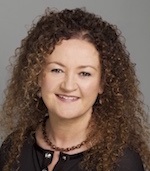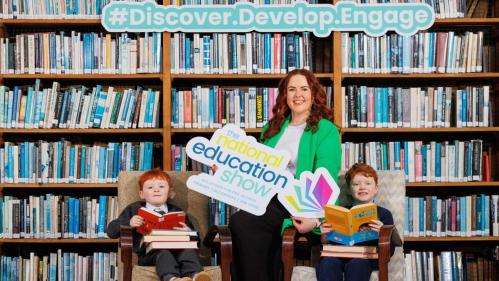
After spending many years in the 60’s and 70’s in primary and secondary school, struggling with my reading and spelling, I found out in my first year at Trinity College Dublin, that I was dyslexic.
After the initial shock from this discovery, I was comforted that my difficulties actually had a name and that I wasn’t just a slow learner or, indeed, just not applying myself properly. There was a reason why I couldn’t remember sequences like math tables or poetry, why I dreaded reading aloud, and why I had to read and re-read text many times before I could fully understand it. I also went to a Gaelscoil for secondary education, and I had the same difficulty there trying to learn and speak Irish – it’s difficult for people who don’t have the problem to understand the damaging impact it has on the individual. It also affects every subject on the curriculum and, without appropriate intervention, it only gets worse! Basically, it means less opportunity for the individual to reach their academic potential.

In my case, there was the feeling of shame; but, in time, this turned to anger – why hadn’t this been picked up long before now? The simple answer was that dyslexia was a relatively new condition and, at that time, few of the services were equipped to identify or treat it. The thinking in those days was that people with dyslexia just needed more time; and, incredibly, the same products and pedagogy that had failed them in the first place, were used again - only at a slower pace and with little effect. Thankfully, things have changed a lot since then.
I am now a competent reader and speller, and 30 years ago I embarked on a mission to create change and try to prevent other children or young people from experiencing the difficulties I went through. Drawing from my own personal and clinical experience as a Speech and Language Therapist dealing with Specific Learning Difficulties (SLDs), I can now impart to others this ‘first-hand’ knowledge gathered from: (a) having dyslexia; (b) specialising in literacy problems, and (c) using the knowledge gained from interviewing and listening to thousands of concerned parents, over the years.
It became clear to me that the vast majority of parents and children were reporting very similar problems in; (a) trying to identify the nature and cause of the problem, (b) getting a correct diagnosis, (c) the confusion with the plethora of solutions suggested, and (d) knowing what they were eligible for in school. Hindsight and experience are great things, and I now have a very good understanding of the causes and indicators relating to reading and spelling problems.

It is a complicated affair, so here are some signs that may help in identifying an underlying problem:
-
My child is bright but is struggling with reading aloud.
-
My child is bright but is struggling with spelling.
-
Although doing well in weekly class spelling tasks, he/she can’t remember the same word a week or two later.
-
I find it difficult to read what my child has written because there are so many spelling mistakes.
-
My child puts so much effort into trying to read something that he/she is not really understanding what they have just read.
-
My child’s reading is very slow because they are trying to break down each word letter-by-letter.
-
My child won’t read without being pushed, because reading is just too hard for them.
-
None of the literacy methods I have used to help my child have made any real difference.
-
Despite getting learning support in school, there has been little or no progress; I think the method used didn't make sense to my child.
-
My child hates the ‘work’ part of school but loves the social interaction.
-
Although bright, learning from books is really hard for them.
-
My child was a keen reader, but since second class his/her reading skills have deteriorated and the STen scores on tests are falling.
-
My child’s STen scores are at 4 or lower on school reading and spelling tests.

If the answer is 'yes' to any of the above, this could indicate that your child is beginning to fall behind with their reading and/or spelling - and now is the time to seek advice. Start by talking to the teacher, or feel free to contact me!
In the next article, I will explain how to interpret the common assessment tests used in schools and, from the results, what actions might need to be taken.








